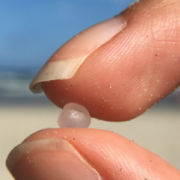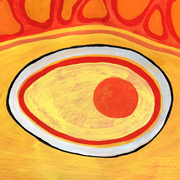(Thread IKs:
Stereotype)
|
https://twitter.com/GregStohr/status/1485644748379594761
|
|
|
|

|
| # ? May 30, 2024 01:54 |
|
tiberion02 posted:Just want to emphasize this. Not only is he doubly relevant and prescient due to the Plague and all, but there are few better roads to understanding how to find Meaning than the one Camus seeks to impart. What if I'm already happy
|
|
|
|
Scientists Are Tinkering With Clouds to Save the Great Barrier Reef Super-reflective clouds could shelter coral from scorching sunlight. But environmentalists are concerned that such plans could prolong our addiction to fossil fuels.  quote:It’s a sweltering summer in Australia, and the corals on the Great Barrier Reef are showing early signs of stress. The authority that manages the largest coral reef system in the world is expecting another bleaching event in the coming weeks—if that happens, it will be the sixth time since 1998 that spikes in water temperatures wipe out swathes of corals that are home to countless marine animals. Three of these bleaching events, which make corals more susceptible to disease and death, have happened in the last six years alone. When corals experience extreme and prolonged heat stress, they expel the algae living in their tissues and turn completely white. This can have devastating impacts on the thousands of fish, crabs and other marine species that rely on the reefs for refuge and food. To slow the rate at which ocean warming is bleaching the coral, some scientists are looking to the skies for a solution. Specifically, they’re looking at clouds. 
|
|
|
|
imo i don't really have a problem with small scale testing like that. shooting a little salt into the atmosphere is not going have huge effects elsewhere and it certainly isn't going to be some self-perpetuating cycle on its own but of course if / when it works people will try doing it on a huge scale
|
|
|
|
Cup Runneth Over posted:What if I'm already happy Then you wouldn't be posting in here. Edit: VVVV-- I deserve that one. Ssthalar has issued a correction as of 20:38 on Jan 24, 2022 |
|
|
|
Ssthalar posted:Then you wouldn't be posting in here. idk threat title doesnt say sad sacks only
|
|
|
|
the word doom comes from an old-Germanic word for judgment so that is pretty funny in this context.
|
|
|
|
https://www.youtube.com/watch?v=xg6_xNbcHcw https://soundcloud.com/proton-4-1
|
|
|
Basic Poster posted:I mean we in this Meatloaf died yesterday. Or was it today, I can't be sure.
|
|
|
|
|
Torpor posted:the word doom comes from an old-Germanic word for judgment so that is pretty funny in this context. german has over 100 words for judgment.
|
|
|
|
skooma512 posted:Meatloaf died yesterday. Or was it today, I can't be sure.
|
|
|
tiberion02 posted:The struggle itself toward fighting collapse is enough to fill a man's heart. One must imagine every poster ITT, happy
|
|
|
|
|
https://www.youtube.com/watch?v=2jTg-q6Drt0
|
|
|
|
a fav pulled from the covid thread. https://www.youtube.com/watch?v=sDeMfL8Ib9A
|
|
|
|
AppleNippleBOB posted:a fav pulled from the covid thread. this isn't really my cup of tea, but i can't deny that it's really loving good
|
|
|
|
one of the coolest things about amoc collapsing is permanent hypercane season https://twitter.com/JohnMoralesNBC6/status/1485643971103756288
|
|
|
|
oh also for more fun here's istanbul today https://twitter.com/ragipsoylu/status/1485692358142443522
|
|
|
|
lol a blizzard in Istanbul?????????????????????????????????????
|
|
|
|
it does snow there every year, if only for a handful of days, so it's not unbelievable. of course thanks to climate change these rare events will happen with less and less predictable frequencies
|
|
|
|
A Bakers Cousin posted:lol a blizzard in Istanbul????????????????????????????????????? I wonder how your hair would fare in a blizzard? ☃️
|
|
|
|
Mayor Dave posted:oh also for more fun here's istanbul today great time for a drive tbh
|
|
|
|
Mayor Dave posted:one of the coolest things about amoc collapsing is permanent hypercane season just look at that curve
|
|
|
|
Mayor Dave posted:oh also for more fun here's istanbul today istanbul's the top o' the north pole it was istanbul, now the top o' the north pole been a few years gone, the top o' the north pole i wanna know, where'd the north pole go? that's nobody's business but the BOE
|
|
|
|
mawarannahr posted:the lack of profits is such a shame Remember what I posted a month ago? 
|
|
|
|
Oxxidation posted:istanbul's the top o' the north pole 
|
|
|
|
the homosapiens planet absolutely will engage a mass-scale atmospheric dimming event and you need to maker your peace with this sooner than later it's simultaneously the simplest/lowest effort to "unfuck" things and also the most potentially disastrous mitigation effort we could do, so 100% chance we'll do it
|
|
|
|
SKULL.GIF posted:the homosapiens planet absolutely will engage a mass-scale atmospheric dimming event and you need to maker your peace with this sooner than later Is this where tech bros try to darken the sun?
|
|
|
|
|
Basic Poster posted:Is this where tech bros try to darken the sun? It's launching aerosols into the atmosphere and probably triggering World War III since doing it at a global scale will absolutely gently caress with food production throughout the world. The best part is that it's wildly temporary so you really, really cannot stop. Stop shoving sulfates into the atmosphere and you're going to get temperatures bouncing back within a matter of years, which I'm sure will produce very normal effects on the climate. Also does nothing to help the oceans.
|
|
|
|
Oxxidation posted:istanbul's the top o' the north pole
|
|
|
|
Paradoxish posted:It's launching aerosols into the atmosphere and probably triggering World War III since doing it at a global scale will absolutely gently caress with food production throughout the world. It's the perfect answer if there's a technology just a few years away which will solve the real problem. Man, Transarctica future here we come.
|
|
|
|
JeremoudCorbynejad posted:Scientists Are Tinkering With Clouds to Save the Great Barrier Reef Okay, this must happen. I really need to know how long their ships will last in a warm environment with a salt water mist constantly falling on them. Maintenance will be legendary.
|
|
|
|
Hexigrammus posted:Okay, this must happen. I really need to know how long their ships will last in a warm environment with a salt water mist constantly falling on them. Maintenance will be legendary. they'll probably deploy one or two, find it does mostly fuckall and doesn't last, and funding will run dry but fret not, the status quo must flow so we will do every harebrained idea to keep jizzing off more oil as it's the only palpable option.
|
|
|
|
Paradoxish posted:The best part is that it's wildly temporary so you really, really cannot stop. Stop shoving sulfates into the atmosphere and you're going to get temperatures bouncing back within a matter of years, which I'm sure will produce very normal effects on the climate. Also does nothing to help the oceans. That’s the feature that ensures we’ll end up doing it rather than a once-and-done solution for chumps.
|
|
|
SKULL.GIF posted:the homosapiens planet absolutely will engage a mass-scale atmospheric dimming event and you need to maker your peace with this sooner than later
|
|
|
|
|
Basic Poster posted:Is this where tech bros try to darken the sun? Once Musk finishes dimming the stars with trash satellites, he'll need something else to gently caress up in the sky
|
|
|
the crane plague in israel appears to have subsided  now: escaped lab monkeys are running wild in america!
|
|
|
|
i'm moving to the city soon and was really looking forward to it, but now am experiencing pangs because in the past month i've found five individual frogs* in my yard and i want to stay and protect them  *they were all different colours, so it wasn't just the same frog manifesting multiple times
|
|
|
|
|
an egg posted:the crane plague 
|
|
|
|
A Bakers Cousin posted:lol a blizzard in Istanbul????????????????????????????????????? I’ve seen snow most years of my life and some of it was kinda heavy
|
|
|
|

|
| # ? May 30, 2024 01:54 |
|
Rime posted:Remember what I posted a month ago? i thought of you 
|
|
|












































